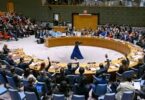Over the past two and half decades, India is violating the provisions Indus Water Treaty (IWT) by completing Construction of Kishan Ganga dam on the River Neelum and launching other projects on the River Chenab. It is sheer water aggression to deprive Pakistan of its share water from the three westerly rivers allocated to it under the treaty as a lower riparian country. After four months of dally-dallying, India has agreed to fulfill its commitment of getting its two hydropower projects—1000 MW Pakal Dul and 48 MW Lower Kalnal—inspected by Pakistani experts. Media reports last month revealed the drying up of Head Marala because India stopped the downstream flow of water in Chenab River.
According to Pakistan’s Commissioner for Indus Water Meher Ali Shah, a delegation of Pakistani experts will visit Indian projects on Chenab River for Inspection later this month. India has also given positive signal regarding inspection on this river. Shah said Pakistan has achieved this “success” after raising violation of 1960 IWT.
The breakthrough on resolving water dispute with India seems to be the first step of success PTI government’s towards resolving water dispute with India. Ironically, the governments of two other mainstream political parties in their respective tenures of government did not give importance to water diplomacy viz-a viz India which enabled it to establish a strong lobby within the World Bank which abdicated its role of guarantor of this treaty.
The Indian lobby in Washington had succeeded and the World Bank (WB) had openly come out in the support of Indian stance on the construction of controversial storage dam projects. After lingering on the issue of Kishan Ganga Dam for two years the WB had asked Pakistan to withdraw its plea for setting up a court of arbitration and accept India’s proposal to appoint a neutral expert on the issues of Kishan Ganga on river Neelum and Ratel Hydropower project on the River Chenab.
The WB had informed the Attorney General of Pakistan office that it is ready to appoint a neutral expert to examine these issues if Pakistan gives up its demand for constituting the Court of Arbitration. India floated the proposal of appointing a neutral expert in 2016 which Pakistan did not accept. In June last year former Attorney General of Pakistan, Ashtar Ausaf Ali led a delegation for two day meeting with WB officials to discuss Kishan Ganga and Ratel Hydropower projects under the Indus Water Treaty but could not convince the bank management on Pakistan’s stance.
The diplomatic inertia of the previous PML-N government had put Pakistan in catch 22 situation on India’s foreign policy option of water aggression against Pakistan. The legal experts, who were well aware of the whole issue, were convinced that the United States is fully backing the WB for supporting India because strategic partnership between them and Pakistan’s strained relations with the US. They said there was evidence to establish that the US halted the process of establishing the Court of Arbitration for favouring India so that it could easily complete the project.
India conceived the Kishan Ganga dam project in 1993 and Pakistan rejected its design. But the matter was not further vigorously pursed before the starting the construction work by India, neither by the PPP government 1993-96 and PML-N government 1997-99. The Musharraf Government made the issues of controversial Indian dams including Tubul/Wullar, Baglihar and Kishan Ganga projects a vital component of Pak-India Composite Dialogue process during 2004-2006. India started construction work on Kishan Ganga dam in 2010 and complotted it in May 2018. Pakistan approached the World Bank against the project much later after the construction work on it had started, saying its design is in violation of IWT. However, the World Bank Tribunal observed that India can use the water of three western rivers but can not divert the water flow. The Kishan Ganga project diverts bulk of the water flow of river Neelum, badly impacting the hydro power potential of 969 megawatt Neelum Jhelum project.
On account of tribunal findings, India streamlined the construction work and Pakistan’s government approached WB in 2016. On this belated move India contended that it was not a case of arbitration by a tribunal and proposed the appointment of a neutral expert to examine the design of the project. The WB decided to weigh both the options proposed by India and Pakistan. The process of appointing the arbitrator was also started in November 2016.But in December 2016, Pakistan was astonished when it received a letter from the WB President, which said he had decided to “pause” the process regarding the appointment of tribunal and neutral experts till January 2017. It was a covert move to allow India to continue the construction work on the project. Hopefully, the incumbent government will effectively pursue the resolution of water disputes with India.






